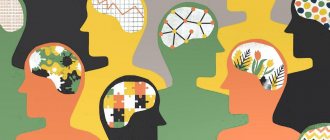Forming a child’s personality is the first step in preparing him for adulthood. This is an important task for parents and society, and it is not limited to just teaching certain skills. To raise a mature personality, it is necessary not only to tell him about discipline, self-care and the like, but also to instill moral and ethical standards and spiritual values.
Childhood and adolescence
Between the ages of birth and one year, a child goes through a huge developmental journey. He masters new movements, learns to sit and stand. The first year of life is the time when a child masters the ability to handle things and begins to understand the speech of adults.
- At an early age (1-3 years), the baby develops most intensively physically and psychologically. Perception and behavior change. The brain is growing at a rapid pace. Three-year-old children are very sociable. When adults read or tell fairy tales, they enjoy listening to their speech, emotions, and intonation. The main activity of a child is to obtain information and understand the world around him. Personality development at an early age is most influenced by communication with the mother or the person who replaces her.
- Preschool age (from 3 to 6-7 years) is also characterized by physical growth, the child becomes stronger. The leading activity at this stage is role-playing. The famous Russian educational psychologist A. Makarenko was convinced that for a child at this age, role-playing play is just as important as productive work for an adult. Children's play reflects adult life; the child learns to act out different situations.
- The main activity for primary school age (from 6-7 to 11-12 years old) is learning. Age-related characteristics of personality development at this stage are associated with changes in the social situation of development - the child goes to school. The child now interacts with society. He is given responsibilities for which he receives public appreciation.
- Adolescence (13-16 years for boys and 11-15 years for girls) is one of the most important and difficult stages for the formation of the psyche. Age-related development of personality is characterized by the search for “one’s own” social role - when communicating with peers, a teenager tries on different models of behavior and cuts off inappropriate ones. He especially needs friends. You can share with them experiences that cannot be told to adults.
Formation of human personality
The process of personality formation is the emergence in an individual of historically formed human qualities. What quality will manifest itself in a person depends on several factors.
Personality formation factors:
- Education in childhood and self-education in adulthood
The role of the family in the formation of personality cannot be overestimated. The educational function is the main function of the social institution of the family.
In full-fledged and prosperous families, harmoniously developed individuals grow up. Unresolved childhood problems become factors that prevent a person from developing. The child learns to be a member of society by listening and copying his parents.
Children copy the styles and patterns of behavior, roles, strategies, habitual types of thinking and expressions of feelings of significant adults. Values and ideals, positive and negative (for example, anxiety and suspiciousness) qualities are unconsciously adopted from parents.
Later, parental instructions turn into an “inner voice”, and such moral qualities as conscience, honor, morality and others are formed (or not formed). Becoming an adult, a person uses the knowledge given by his parents about socially approved and acceptable behavior and develops new ones.
- Genetics
People are different because no one person has the same set of genes. A person receives some of the characteristics and components of individuality at birth with a set of genes.
The child experiences and is able to express basic emotions from the first days of life; temperament is determined from birth. Regarding the genetic factor, the role of the family in the formation of personality is no less important than in education. Some mental illnesses are genetically transmitted.
Social influence of reference (significant) groups, relatives, friends, colleagues and other people from the close environment.
- Life experience
Every event that happens to a person affects his inner world, especially if it is a significant incident. Individual experiences can change the course and direction of life. A person develops willpower, character, develops abilities, finds or loses motivation under the influence of events that have happened in his life.
- Mentality and culture
The mentality is influenced by the environment and climate in which representatives of a particular nationality live. Mentality can be defined as the “character” of a people. For example, in southern countries, people are usually active, emotional, and temperamental.
Culture, moral values and morality prevalent in society are instilled in people from birth and guide the process of personality formation. In some cultures, people behave more freely, naturally and casually, while in others, restraint is cultivated, and the need to strictly adhere to the rules of behavior.
Personality formation factors influence it whenever a person finds himself in a new sociocultural environment. The formation of a personality, in essence, is a series of a person’s entry into a new social community and the result of staying in it. How individuality is formed and manifests itself in a particular environment depends on the success of the three phases of development.
Phases of personality development:
- Adaptation
The formation of personality occurs through its acceptance of norms and forms of activity in a social community. The individual strives and to some extent becomes the same as all other people.
- Personalization
At the second stage, a person, realizing that he is “like everyone else,” searches, finds and shows his individual characteristics, actively strives for personalization.
- Integration
This phase determines not only the formation of personality, but also the development of the society in which a person operates. An individual must successfully harmonize his individuality with society and demonstrate those unique distinctive qualities that are useful for people. By benefiting society, a person develops.
If these stages of personality development are not completed, disintegration occurs and the person is not accepted by society. He is either forced out, or he himself isolates himself from people. The formation of personality during disintegration stops and can be reversed. If a person returns to earlier stages of his development, his degradation occurs.
Youth and early adulthood
Youth has conditional age boundaries. Most scientists are of the opinion that adolescence, preceding early adulthood, lasts until 22-25 years. At this time, the leading activity is intimate and personal communication. The body completes physical development, growth slows down. The main psychological task of this age is to find one’s place in the world. Foreign psychologists, for example, E. Erikson, call this process the search for identity. Domestic research calls it self-determination, self-knowledge. This process must be completed by the age of 21-25 so that a person can begin to solve other life problems.
Early adulthood, or youth , is the period from 21-23 to 30 years. The main features of this age are rapid cognitive development against the backdrop of an increasingly slower physical growth. A person learns to be independent and take responsibility. Another sign of adulthood is the appearance of new character traits - firmness, determination, reliability. Youth is the time to start a family. It is most optimal for choosing a life partner and having children.
Personal influence
A person continues to develop throughout life. Naturally, everyone has certain inclinations, innate characteristics that we do not choose - there is a family and habitat that we can partially correct over time. How to be? A strong personality who knows what he wants will always strive for self-development, direct it to the necessary character traits, abilities, areas of life. Only through willpower and constant work can one influence these processes.
Moreover, philosophers consider work both literally and figuratively. Labor has made a person a person; in the process of activity and direction of his efforts, the person also develops and acquires certain skills. There is also professional growth, as one of the facets of a holistic personality.
Now psychologists are talking more and more about the personal factor of development and calling for responsibility for one’s life. It is wrong to say that I am the way nature created me and I can’t do anything; this is a passive position in life.
Maturity
The period of maturity, or adulthood (from 30 to 60-70 years) is the time when a person has the opportunity to fully realize his potential. In Western psychology this process is called self-actualization. Personal development in adulthood presupposes greater social activity and maximum impact in the profession. Maturity is a period of personal flourishing. E. Erikson considered this stage the age of “committing deeds.”
The main feature of adulthood is generativity and restlessness. A person wants to be the best parent, achieve heights in his profession, and be a support for his family members. The American scientist G. Allport identifies the following traits characteristic of a self-actualizing personality:
- Realistic attitude in oneself, activity and activity;
- Feeling of emotional warmth;
- Interest in the surrounding world;
- A philosophy of life that summarizes the experience gained and determines human actions;
- Compassion for other people, the ability to understand and empathize.
Stage-by-stage formation of personality in psychology
It is customary to distinguish the following stages of personality formation in psychology:
- The desire to communicate or, on the contrary, to withdraw from people, which begins in the first year of life. Here the basis is contacts with adults, built on emotions.
- Gaining independence and confidence manifests itself in a child by the age of three through objective activities that allow him to get to know the things around the baby.
- Active exploration of the world, thanks to the child’s natural curiosity. At this stage, which lasts up to 13 years, communication and work skills develop. They train through role-playing games during their studies.
- Puberty, the choice of life values, and profession should be completed by the age of 20. Intimate communication and educational and professional activities play a key role here.
- Implementation of plans, realization of one's own capabilities, enjoying the results of work, raising children - lasts up to 60 years.
- The final stage is considered to be deepening into creativity, analysis and rethinking of life and actions.
It turns out that personality and its formation are not considered in psychology as a static structure. On the contrary, it is believed that an individual goes through a number of stages of development throughout his life.
Age-related features of personality development in old age
Old age is associated with many negative life changes. Health deteriorates, physical capabilities are limited, and a person loses social status. The age-related characteristics of personality development of this period are studied by a science called gerontology. Scientists identify several features characteristic of the social situation of late age:
- Contacts with work colleagues may remain for some time after retirement, but then are lost;
- Pensioners make new friends - often also elderly, but there may also be younger people;
- Other family members, confident that “he already has a lot of time,” like to leave their children with their grandparents, so communication with grandchildren is also an important element of this age;
- Most social contacts occur within the family, so close people need to be especially tactful with those pensioners who “have not yet gained experience.”
In ancient times and even in the Middle Ages, very few people reached old age. Until the 17th century, only 1% lived to age 65. Nowadays, life expectancy varies across societies. This is clearly demonstrated by the so-called “Roseto effect”. It was as follows. Residents of the small American town of Roseto, immigrants from Italy, were half as likely as in other cities to die from cardiovascular diseases.
One day, a doctor from Roseto met with a friend and colleague who worked in a big city, and they shared their experiences. It turned out that such a low mortality rate is associated with the lifestyle of the immigrants. Three generations lived in the houses of this town. Families spent a lot of time together at the dinner table and actively included the elderly in social life.
Despite the hard work and traditional Italian food, which residents cooked with lard, due to everyday communication, morbidity and mortality rates in the older generation were low.
Theories of personality formation in psychology
Different areas of psychology consider the process of personality formation in their own way. There are psychodynamic, humanistic theories, trait theory, social learning theory, etc.
A number of theories have become the result of experiments, while others remain untested in practice. It must be understood that some teachings do not consider human life from birth to death, since it is believed that personality formation occurs in the early years or before reaching adulthood.
The theory of the American psychologist Erik Erikson is considered to be the most holistic, including a number of positions on this issue. He argued that personality is formed according to the epigenetic principle, that is, throughout a person’s life, he goes through eight stages of development. Moreover, such stages are determined genetically and are not influenced by social factors or even the individual himself.
In psychoanalysis, the formation of personality is considered to be the adaptation to life in society of the natural, biological essence of a person. Namely: it is important for an individual to learn to satisfy his needs in a form that will not be rejected by society, and to develop protective mechanisms of the psyche.
A woman's behavior in relationships according to her sun sign
The article talks about what a woman’s behavior in a relationship can be according to her sun sign
Read >
The humanistic theories of A. Maslow and K. Rogers contradict the position of psychoanalysis and call the basis for personality formation the emergence of a person’s skills of self-expression and self-improvement. Humanistic theories are based on the idea of self-actualization, which is considered the key need of the individual. Human development occurs not through instinctive needs, but through higher spiritual and social values.
The formation of personality in psychology is considered as a person’s search for his “I”, the disclosure of internal potential. As a result, we can talk about an active, creative, spontaneous, honest individual, capable of being responsible, free from thought patterns, wise, ready to accept himself and others with all their shortcomings.
Among the components of personality, it is customary to distinguish the following properties:
- abilities, that is, individual qualities on which the possibility of achieving success in any activity depends;
- temperament or innate characteristics of higher nervous activity that determine human reactions in society;
- character is a set of cultivated qualities on the basis of which behavior towards oneself and others is established;
- the will or ability to achieve a goal;
- emotions, that is, emotional disturbances, experiences;
- motives, namely incentives that encourage a person to act;
- attitudes or beliefs, position on a certain issue.
Similar articles
Gemini man in marriage: rebellious duplicity or double supply of love Anastasia Grokhotova
•January 29, 3:41
The influence of elemental energies on a person’s personality: Fire, Earth, Air, Water Natalya Rascheskova •January 29, 3:41
Sagittarius child: personality formation Anastasia Grokhotova •January 29, 3:41
Scorpio child: development of a harmonious personality Anastasia Grokhotova •January 29, 3:41
Houses in horary astrology: meaning in various areas Elena Tarim •January 29, 3:41
Age crises
Without turning points - crises - it is impossible to become an adult. Age-related characteristics of personality development are different for each of the crises: youth is characterized by a crisis of loneliness, at 30 years old - a feeling of the meaninglessness of life. At the age of 40, a person realizes his freedom, sums up the intermediate results of life, and returns to the true “I”. 60-70 years is “the time to collect stones.”
In adolescence, a person solves the problem of separation from his parents. He either takes a step into independent life and finds a mate, or remains alone and dependent. But society usually places emphasis not on psychological separation from the parental family, but on the choice of profession. A good solution to get out of the crisis is to start earning money on your own and go abroad to study. A metaphor for adolescence can be the image of a ripe apple falling from an apple tree.
The crisis of 30 years is characterized by the fact that a person ceases to bring joy to everything that was previously its source - work, family, hobbies. The person may suffer from severe depression. He has the last chance to separate from his parents, if this has not been done before. The main task is to understand whether the previously chosen path is suitable. A metaphor could be Sisyphus rolling a stone uphill. A person wonders: is there a difference in how to live life if everyone is equal before the gates of eternity. But after some time, he realizes that the meaning of life is to gain his own unique experience, to live an authentic life.
The role of biological and social factors in the formation and development of personality
Traditionally, there are two main categories of factors that determine mental development: biological and social . However, their roles are different and have not yet been fully studied. There are several theories about the role of biological and social factors in personality development:
- Theories of dominance of social factors . Supporters of the idea of the dominant role of “environment” and “society” believe that a person is a product of external influence. Representatives of this trend are called “sociologizers,” and the trend itself is called sociogenetic. The origins of the sociogenetic movement were the English philosopher John Locke. He believed that the soul of a newborn is like a “blank slate” (tabula rasa), on which you can write whatever you want. Any personality trait is determined solely by personal experience, and innate factors do not matter much. A decisive role in the mental development of a person was assigned to training and upbringing. Scientists identify certain groups of environmental factors (A.V. Mudrik). Macro factors include space, peace, climate, society, state; mesofactors - individual social groups of people and institutions, school, media; microfactors - family, peers.
- Theories of dominance of biological factors . The opposite point of view was held by the French philosophers Rene Descartes and Jean-Jacques Rousseau. These are representatives of the so-called “biologization” direction, the main idea of which is that heredity and genetic factors are of greatest importance for the development of personality, while the influence of the environment is minimal. The child grows according to natural laws, realizing what is given to him by nature; you just need to trust this growth and not interfere with it. Development is understood as the unfolding of the body's genetic programs, as the hereditarily programmed maturation of natural forces. The determining factor in development is the inclinations and anatomical and physiological characteristics of the body, inherited from ancestors.
- Theories of the convergence of biological and social factors . Author – V. Stern. He believed that mental development is not a simple manifestation of innate properties and not a simple perception of external influences, but the result of the convergence of internal data with external conditions of development. Stern wrote: “You cannot ask about any function, about any property: “Does it occur from the outside or from the inside?”... since both take part in its implementation.” The theory of convergence considers mental development as a process that develops under the influence of X-elements of heredity and Y-elements of the environment. Elements of the environment are given more importance. This is the most widespread concept of modern, primarily Western, psychology. The limitations of the theory of convergence are manifested in the fact that the mechanistic addition of biological and social factors does not allow us to understand the essence of human development in nature and society.
- Theories of confrontation (confrontation) of biological and social factors . Origins: Freudian psychoanalysis and neo-Freudian theories. Development is seen as the result of a confrontation between biological and social factors. Z. Freud believed that personality development can be understood based on the study of two principles - the principle of the pursuit of pleasure and the principle of reality. The desire for pleasure is associated with the satisfaction of biologically given, innate and natural drives, but this desire encounters prohibitions and norms that exist in society and in the social environment. In accordance with the principle of reality, a person is forced to take into account the relationships that have developed in the world. Thus, the confrontation of two factors appears as a conflict between society and the drives of the individual.
- Concept of interaction of biological and social factors . Russian psychology, within the framework of the cultural-historical direction, at the origins of which stood the outstanding psychologist Lev Semenovich Vygotsky, managed to overcome dualism in resolving the issue of the driving forces of mental development. One of the main ideas of L.S. Vygotsky’s idea is that in the development of a child’s behavior it is necessary to distinguish two lines: natural “maturation” and mastery of cultural ways of behavior and thinking (socialization). Cultural development consists of mastering such means of behavior that humanity created in the process of its historical development: language, writing, counting systems, etc. The assimilation of the cultural and historical achievements of humanity by a child occurs in the process of the transition of the child’s external objective activity into internal mental reality, external reception as would “grow in” and become internal - this process is called “interiorization”. Vygotsky's followers noted that the development process is determined primarily by the activity of the subject himself - this is his self-movement thanks to activity with objects - while the factors of heredity and environment only represent conditions that determine not the essence of the development process, but its variations within the normal range.
Crises of the second half of life
The Divine Comedy was written by Dante when he was 33 years old, a sacred age in many religions and myths. The autobiographical hero of the poem finds himself in a dark forest, metaphorically denoting the middle of life. Since life expectancy has increased, this crisis is now called the “40-year crisis.” This is the longest and most powerful psychological crisis. His energy is enough to destroy the life of someone who is afraid of a crisis. It is also enough for creation - but only for those who are not afraid of change and are ready to meet them face to face.
The age-related development of personality of this period is best reflected by the image of a jester, or a fool. He holds a rose in his hand - it denotes purity of thoughts. Behind his back he has a bundle of belongings - everything that could be taken from his past life. On tarot cards, the jester is often depicted with his leg raised over an abyss, with the sunset sun behind him. Below is the sea. The image of the jester symbolizes the opportunity to start over.
The most difficult crisis to comprehend is the crisis of post-retirement age, or 60-70 years. If earlier it was possible to hide from thoughts about the finitude of life, now death, figuratively speaking, “looks you in the eye.” If earlier it was possible to ask other people for help, now you will have to face the crisis on your own - no one alive has ever been “in the next world.”
It is easier for believers, since for them there is the Kingdom of Heaven, eternal life. It’s more difficult for materialists. The main idea of the crisis is “all people are mortal.” In the modern world, people try not to attach importance to this fear. They stay away from anything that is in any way connected with death - these are rituals, objects associated with funerals, the bodies of the deceased. Everything that brings the unknown is scary. The fear of death breaks into everyday life only in the form of phobias, fears, and nightmares. They either try to deny death or strive towards it. However, Freud's Thanatos alone cannot fully explain it.
Many people become more religious during this period of life. Some choose to believe in a new birth after death, reincarnation. The Tibetan Book of the Dead speaks about this.
Levels of personality development.
Many classifications of the structure of personal development have been invented. On average, there are seven main levels, which were proposed by Russian sociologists Dmitry Nevirko and Valentin Nemirovsky. According to their theory, people combine the following successive levels of development:
- Survival – maintaining physical integrity;
- Reproduction – reproduction and material consumption;
- Management – the ability to be responsible for oneself and others;
- Feelings – knowledge of love, mercy, goodwill;
- Excellence – the desire for expertise and creation;
- Wisdom – improvement of intellect and spirituality;
- Enlightenment is a connection with the spiritual principle, a feeling of happiness and harmony.
Anyone should ideally pass each of these levels. At the same time, the process of personality development is associated with life lessons. If someone jumps over a “step”, then he will have to catch up. A person who is “stuck” at one of the levels simply has not yet learned his lesson, or perhaps simply has not received it yet. Either he is taking another lesson, or he is not yet ready for a new one. One of the first motives of personal development is self-affirmation, which is later replaced by concern for one’s neighbor. It is this transition from egocentrism to empathy (sympathy) that is one of the most difficult and responsible stages of improvement. We'll talk more about this process in the next section.
Take the empathy test
Mature personality
Age-related development of personality, despite its universality, does not always imply the achievement of psychological maturity. Personal maturity is the ability to solve problems that arise in front of him, and if this is not possible, to ask others for help. An adult sets and achieves specific goals. What are the signs that a person has truly reached the stage of maturity?
- An adult has a clear understanding that his life directly depends on the mistakes he makes . At the same time, he does not hide from them, does not stop acting. Having made a mistake, he draws appropriate conclusions;
- He understands that his life is a unique path . He makes a career and achieves his goals. He commits those actions that he himself considers true, and not those that are imposed by others. Sometimes the desires of an adult may coincide with the desires of others, sometimes not. But he acts in accordance with his own value system;
- A mature person has patience. He understands that his desires cannot be fulfilled instantly . He also does not require others to meet his needs for him;
- An adult understands that mutual understanding always depends on two people . He is able to clearly express his thoughts in order to achieve a dialogue with the interlocutor. This is often difficult for married couples. Many of them naively believe that their spouse can magically “read” their thoughts. When for some reason this does not happen, they are disappointed and go in search of a new partner. Instead of paying attention to their own immaturity, they are sure that they simply made a mistake in choosing a partner.
What is personality development?
Personality development is an element of the general formation of a person, associated with his consciousness and self-awareness. It concerns the sphere of socialization, since outside of society a person lives according to the laws of the animal world. Personality is formed through interaction with other people. In private, without cultural contact and exchange of information, this process is not possible. To avoid confusion, we present the following related concepts:
- Man is a representative of the biological species Homo sapiens;
- An individual (individual) is a separate organism capable of independent existence;
- Personality is a subject of sociocultural life, endowed with reason, morality, and spiritual qualities.
Accordingly, personal development determines those aspects of life that alienate us from animal nature and endow us with socially significant qualities. This concept should not be confused with personal development, which covers all possible areas, including physical fitness, level of intelligence or emotionality. Personal development is related to self-identity. It is not opposed to other types of improvement, justifying the saying “a healthy mind in a healthy body.”
By the way, the levels of personality development partly repeat the needs shown in Maslow’s Pyramid. The initial stage is the satisfaction of functions necessary for life, gradually rising to the level of spirituality and self-awareness.
Take a personality type test
Psychological infantilism
But it also happens that, according to a passport, a person turns 30 (40, 50) years old, but he remains psychologically underdeveloped. This category includes those who constantly hear addressed to them: “When will you finally grow up?” Some of them are even proud of the fact that they do not want to accept the responsibilities of adulthood. It is very difficult for an infantile adult in a world full of problems.
In order to grow up, it is necessary to go through all age-related stages of development, which psychologists call “crises.” At the same time, a crisis is not only circumstances. It is a platform on which the human soul has the opportunity to learn to solve certain problems, receiving its “bonuses” for this. At three years old, a child learns to be independent. This time is called the “3-year crisis,” when the little person increasingly says “I myself.” But if he finds support from adults in his actions, he has a feeling of “I can.” Infantile adults often grow up from overprotective families.
Age-related personality development also represents a major crisis for adolescents. At the same time, the age of 12-18 years is quite fertile soil for a person to develop infantility. It is during adolescence that he decides whether to remain a child or grow up.
What are the characteristics of an infantile personality , or a child wearing the shell of an adult?
- He doesn't know how to control his emotions. Often expresses anger, whims, blames others;
- Does not have a well-developed value system. Focuses on “how it is needed, how it is accepted.” Always tries to copy those around him in what to think, say, how to dress;
- Applies to the world as a consumer. He takes a lot and gives little. The parasitic lifestyle that the infantile personality leads in the family continues in marriage. He simply passes from one guardian to another;
- Fears responsibility and making one's own decisions;
- He lives in “waiting for a miracle”, that someone stronger will come to him and solve his problems.
What conditions will ensure successful personality formation?
Important conditions for the formation of a child’s personality.
Example of parents
It is important for a child to see that mom and dad do not follow a certain script, but really live a happy and fulfilling life. It is impossible to make another person happy if you yourself are unhappy. Many psychologists note that people who do not experience inner harmony often complain about problems in relationships with children. Only happy parents will be able to truly understand their child by building a trusting relationship with him. This contributes to the successful formation of personality. When trying to help your child with this, start with yourself. Reflect: do you know how to accept your feelings, do you allow yourself to truly be happy and sad. Or maybe you are restraining yourself and teaching your child excessive restraint, thereby suppressing his personality.
Communication with others
Show by example how to communicate with other people. Give yourself a little test by honestly answering the question: “Are you able to have an unbiased conversation with a person with whom you disagree in some aspects?” Is there a possibility that you are trying to impose an opinion on another person or are you submitting to someone else’s will? The child will probably adopt this feature from you.
Don’t impose your opinion and position – just share your values. Have you heard the definition of “heartfelt conversation”? Such dialogues arise when a person is ready to understand the interlocutor and share his opinion. In relationships, a person develops, allow yourself to learn new things and teach this to your child.
Care and attention
A person who has felt care and attention at the dawn of development will certainly feel confident and protected. Mother and father become important life references, exerting serious influence. It is great if a mother can demonstrate such qualities as forgiveness, acceptance, love. The child needs to feel affection and warmth. In a father, strictness and gentleness are important, acting undividedly.
Parents are the most important stage in the formation of personality. Everyone knows the words that raising children should begin with their own upbringing. Start with yourself if you want to help your child’s personality acquire important facets.
Personal maturity
Features of human development imply the presence of factors that determine maturity, both the holistic concept of personality and its individual components. Many authors correlate the criteria of maturity, and accordingly a certain final stage of development of certain functions, with age and mental maturity.
Despite the fact that personal development is a continuous and lengthy process throughout life, there are a number of factors that determine a kind of maturity plateau, after which the individual path of development begins.
The basics of personal maturity include:
- Responsibility for one’s own behavior, decisions made, as well as the immediate environment with which the maximum number of contacts occurs. Responsibility is formed only when infantility goes away, as a sign of not yet formed maturity. This concept implies not only the burden for one’s behavior, but also the freedom to choose the necessary paths or desired options for the course of events;
- Tolerance, as the most pronounced social quality, helps to establish harmonious relationships. In addition, patience is seen as a personal manifestation, thanks to which results that require long work are possible;
- Self-development and self-actualization, which are the main driving factors for continuous development and further deepening and expansion of knowledge. This is rather an internal need, rather than a duty determined by external requirements, as is expressed with an undeveloped internal structure;
- Positive attitude towards the external and internal world, as well as towards current events.










